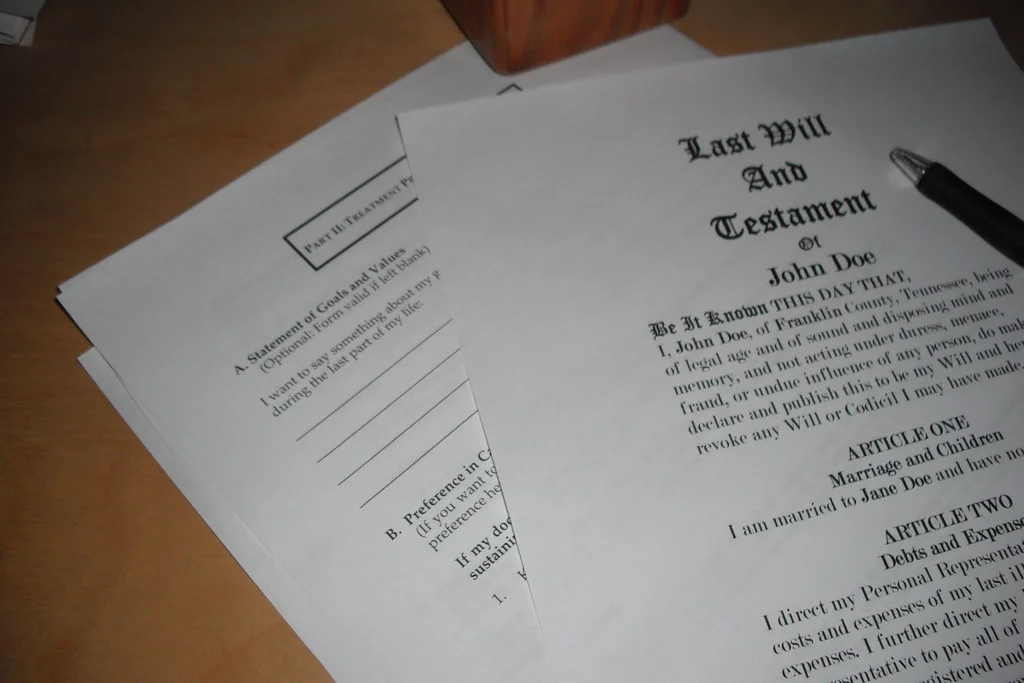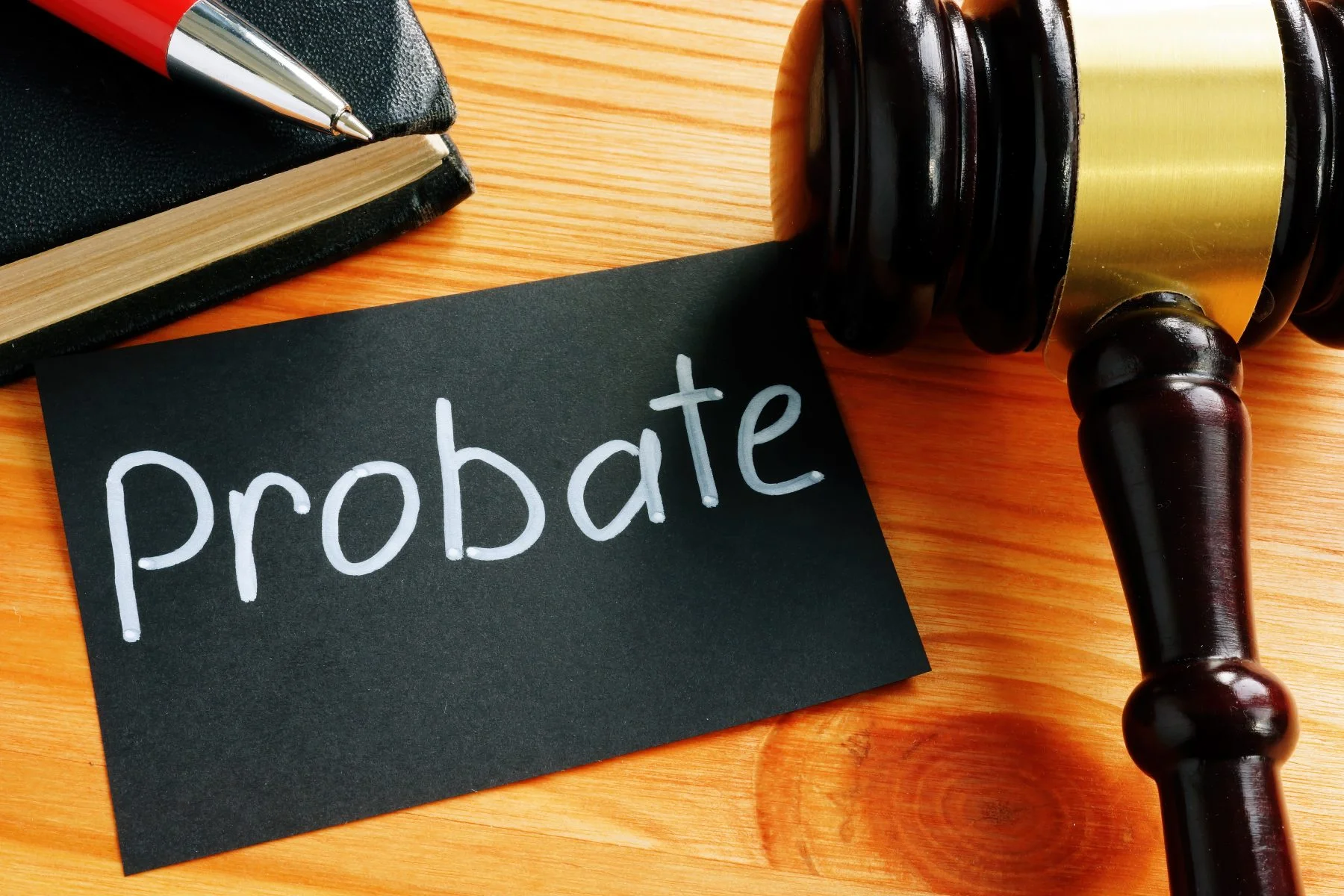
How To Sell an Inherited Home
While inheriting valuable property, like bank accounts, retirement accounts, stocks, or even a house, can be a huge financial windfall, selling that property can be complicated and time-consuming. For instance, considerations need to be made on specific legal aspects such as joint beneficiaries and taxes when it comes to selling a house you've inherited. However, the process doesn't have to be overwhelming. Here, we'll discuss everything you need to know about how to sell an inherited home so you can do so with confidence.

Probate
The legal process of executing the will's wishes or determining the beneficiaries, i.e., next of kin, in the absence of a will, is called probate. This process ensures the administration of the decedent's assets to the wishes of the deceased or proper next of kin, determined if there's no will. All states handle probate differently, but typically, the court appoints an executor to ensure that assets are appropriately distributed, including an inherited home.

Types of Ownership
If a will exists and specifically delineates an individual as the beneficiary for property, a house in this case but any property, the probate process becomes significantly more straightforward. Also, a single heir adds further simplification due to the lack of joint beneficiaries agreeing to sell or keep the property. Unfortunately, there are often multiple beneficiaries for one singular asset, like a house.
There can be a contract that names beneficiaries instead of or in addition to a will. If a contract exists and conflicts with a will, the contract will supersede the wishes outlined in the will. Stay current on legal documents that list beneficiaries so that the decedent's wishes are followed.
Don’t worry about waiting for a realtor, or watching your property sit on the market for months. Sell us your house today!
or email us via our contact form.
Inheritance Taxes
Most estates aren't subject to federal estate taxes except when an inherited property has been sold at a profit. However, inheritors can alleviate a majority of the tax burden. The IRS allows the value of the decedent's property to be its current fair market value as of the date of their passing rather than its initial value. If the deceased had purchased their property 25 years ago for $100,000, but the current fair market value is $200,000, the current value will be used when determining gains taxes.
When the heir(s) sells the property, they would only be taxed for above $200,000. Selling the house for $200,000 would incur zero taxes, and selling the house for $250,000 would incur taxes only on the $50,000 above the current fair market value. This applies to all assets, not just homes. The money above and beyond the fair market value is subject to capital gains tax and can occur either short or long-term.
Short-term capital gains occur when a home or other asset is owned for less than a year. This tax rate is identical to income taxes on individuals in the range of 10% to 37%based on income. Conversely, assets held longer than a year become subjected to long-term capital gain taxes. The tax percentage on long-term gains can be as little as zero, going up to 20%, depending on the individuals' income and tax filing status, with higher earners paying more.

Agreement Amongst All Beneficiaries
Agreeing with all beneficiaries is probably the most challenging part of liquidating an inherited home or other property. For example, if several beneficiaries are listed for a single home, one may wish to keep the property while the others want to sell it and equally split the proceeds to get cash fast. Minimally, the executor in probate must reach an agreement with all the heirs to sell the property.
The inverse also applies, in which the beneficiaries must get permission from the executor to sell the property. It's not uncommon for these disputes related to inherited property to end up in court. If one of the beneficiaries wishes to keep the house, they must buy out the other heirs. Sometimes, the buy-out option may not be feasible due to the high value of the property in question. In that situation, a mediator or non-heir family member may be called to negotiate a solution.
When an individual passes away, the decedent's beneficiary can sell the property. The disposition of the estate can take a very long time, even in terms of years. In the interim, costs relating to taxes, maintenance, utilities, and other necessities can accrue. Also, there could be costs associated with repairs or other maintenance to sell the property. Finally, all heirs must agree on handling the expenses or other aspects of the property.
When you're ready to sell an inherited home, the experts at Coveway Property can help you get cash fast for your property. Contact us today to get started.
Coveway Properties Is the Solution You Need
When your goal is to get out from under that rental property, Coveway is your solution. We will pay you a fair cash value for your home. Our crew is all in-house, so we can offer more than other companies.
You do not need to worry about having banks involved because we take care of working with the banks for you. The process can be quick and painless. The truth is, you could have your money in as few as 5 business days. Just think about that. One week from now, you could be headache free and your rental property will be someone else's problem.
Here is the whole process in a nutshell. You get an offer based on the current condition of your property. We agree on a fair value and begin the closing process. You get the amount agreed upon at closing and we get the deed. It is easy, and you get your life back.

Getting Started: Sell My House Fast
If you have distressed property on your hands, Coveway Properties can help. Our motivated real estate investment team will give you a cash offer for your home in just 24 hours. Contact us now to get started on your path to freeing yourself from the distressed property.
